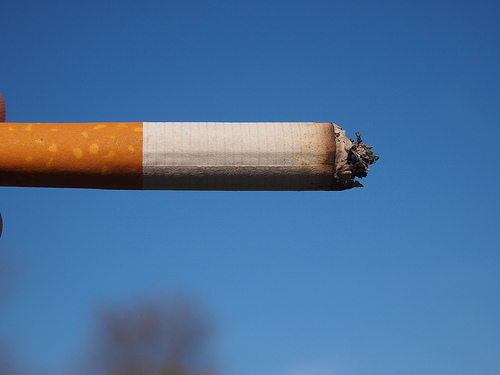After Tobacco, Should CVS Next Take Sugary Drinks and Snacks Off Its Shelves?
Earlier this month, the pharmacy chain CVS announced that it would stop selling tobacco products at its 7,600 pharmacies around the United States as of October 1st. According to Forbes, CVS CEO Larry Merlo believes that “continuing to sell cigarettes, which the Surgeon General blames for 480,000 deaths every year from heart disease, lung cancer, and stroke, was anathema to CVS’ long-term plan to become a central player in the U.S. health care system.” CVS predicts it will lose $2 billion of $125 billion in annual revenues but expects to gain more by emphasizing its products and services that treat the chronic diseases that tobacco, alcohol and unhealthy food cause.
The CVS decision raises the question whether all pharmacies should stop selling all products that contribute to premature death and preventable illnesses. The research evidence that increased availability of tobacco, alcohol and unhealthy food contributes to increased consumption is strong. Unhealthy food is now ubiquitous, making it easier for consumers to indulge wherever they are and also normalizing eating everywhere. Seeing “hyperpalatable” high fat, sugar and salt products on the shelves of pharmacies, convenience stores, book stores, movie theaters, newsstands, sports stadiums, vending machines and elsewhere may trigger hard-wired urges to chase that sugar high.
A new study posted this week in JAMA Internal Medicine provides additional evidence on the harm from sugar. The study by researchers at the CDC, Emory and Harvard found that people who obtained 25% or more of their calories from added sugar had almost three times the risk of death from cardiovascular disease as those who obtained less than 25% of their calories from added sugars. And as with salt, most of the added sugar comes not from the sugar we spoon on our cereal or into our coffee but from the sweeteners Pepsi, Coke, Kraft and Kellogg put in their products. Food companies like to emphasize individual responsibility for food decisions but by lacing so many of their products with so many sweeteners, they have removed that choice for many products. By making these sugary products ubiquitous, they make the healthy choice—less sugar—far more difficult.
While the evidence that higher amounts of sugar contribute to obesity, type 2 diabetes, hypertension, dental disease, and cardiovascular disease is strong, fewer studies have examined whether reducing outlet density reduces consumption, in part because such policies evoke intense opposition from business lobbies and few funding agencies are willing to fund studies that examine the impact of restricting the availability of profitable products. .
The CVS decision to get rid of tobacco shows that a mix of public mobilization, changing social norms and regulatory pressure can persuade some businesses to change their practices. Until 1905, Coca Cola contained cocaine, McDonald’s stopped using pink slime when customers protested, and laws raising the legal drinking age to 21 contributed to a drop in alcohol-related deaths among young people. These examples show that acting together, consumers and government can limit access to dangerous products.
In the case of sugar, the goal is not a ban but rather to reduce the availability of a product increasingly associated with premature death. If CVS executives believe that selling tobacco contradicts the company’s goal of becoming a central player in the U.S. health care system, doesn’t that same argument apply to the added-sugar products associated with soda, candy and other sweetened products? And if CVS thinks it can continue to make a profit with that philosophy, couldn’t Walgreens(with 8,541 outlets) or all the top 25 United States pharmacy chains with a total of almost 23,00 outlets also figure out away to get tobacco—and then sugar –off their shelves?
What would be the policy approaches to persuade pharmacies to rid their shelves of candy bars, soda and other sweet snacks? Legislation would inevitably raise business opposition, witness tobacco industry opposition over the last 50 years to restrictions on selling tobacco. Is that a reason not to try? In the past consumer boycotts and “buycotts” (selecting stores that voluntarily embrace ethical practices) have been used. Is that an appropriate strategy to change what pharmacy chains sell?
What do you think? Is pressuring pharmacies to stop selling unhealthy food a useful health strategy for reducing diet-related diseases? If so, what tactics would be most effective? Send your thoughts on this question to info@nycfoodpolicy.org and we’ll post the responses.



